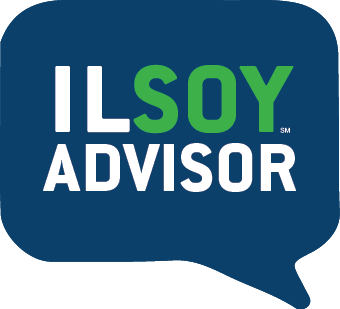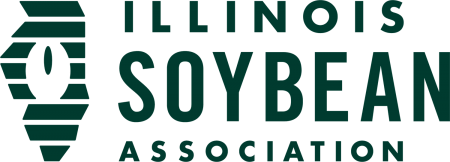ILSOYADVISOR POST
Hang On And Be Prepared
This article was originally published in the May issue of Soy Perspectives magazine.
Say Hello to New Information
The 2020 Soybean Summit drew a crowd of 260 soybean farmers, crop advisers and industry representatives at the Crowne Plaza in Springfield, Illinois, March 10. Industry experts shared agronomic practices, ag technology and agribusiness management information.
Speakers included John McGillicuddy, McGillicuddy Corrigan Agronomics; Sara Wyant, Agri-Pulse Communications; and breakout session experts in agronomy, agtech and agribusiness management. A panel of farmers and Certified Crop Advisers discussed challenges and solutions for industry volatility. Farmers Ron Moore of Roseville and Garry Niemeyer of Auburn joined with Todd Steinacher, AgriGold and Brendan Marshall, West Central FS in agreeing there are still major production and business hurdles caused by the late 2019 harvest to overcome.
1. Allocate Resources Where They Will Make the Largest Difference to Your Bottom Line
Plant nutrition, time, money. John McGillicuddy, McGillicuddy Corrigan Agronomics, says all of these are necessary for producing a profitable soybean crop, but the resources aren’t unlimited. Prioritize finite inputs and evaluate how they can impact soybean yield.
Many different philosophies on maximizing yield exist, including ideas for increasing flowers, nodes and/or pods, but the most important philosophy is the one that increases soybeans on a specific farm. That’s why farmers are encouraged to perform on-farm research. What works for some may not be the best strategy for others. Evaluating how new ideas work in specific fields is key to achieving better yield and profitability.
2. Prepare to Overcome the Many Challenges 2020 Holds
Sara Wyant, president of Agri-Pulse Communications, notes unforeseen market impacts, consumer perceptions, workforce development, unpredictable growing climates and many more challenges face soybean farmers in 2020. The key to overcoming these obstacles is to remember that while farming is a lifestyle, it is also a business. Marketing, succession planning and agronomic plans must encompass this fact. Profitability is the name of the game. The way to expand it is to view all transactions through the lens of return on investment and moving your business forward.
3. Start Clean. Stay Clean.
The easiest weed to control is the one that never emerges. GROWMARK’s David Powell says weed management is becoming more difficult. A major concern for soybean farmers should be waterhemp. Waterhemp can germinate during the spring, summer and fall and produce a large amount of seed that can be resistant to herbicide treatments. This particular weed can show up in new locations already resistant to herbicide treatments. To control waterhemp, use a residual herbicide prior to planting and then use an effective post herbicide that works with the planted soybean trait. Also use multiple modes of action in the tank for best control (pre-groups 3, 5, 14 and 15; post-groups 4 and 10).
Read the full article at ilsoy.org.





Comments
Add new comment